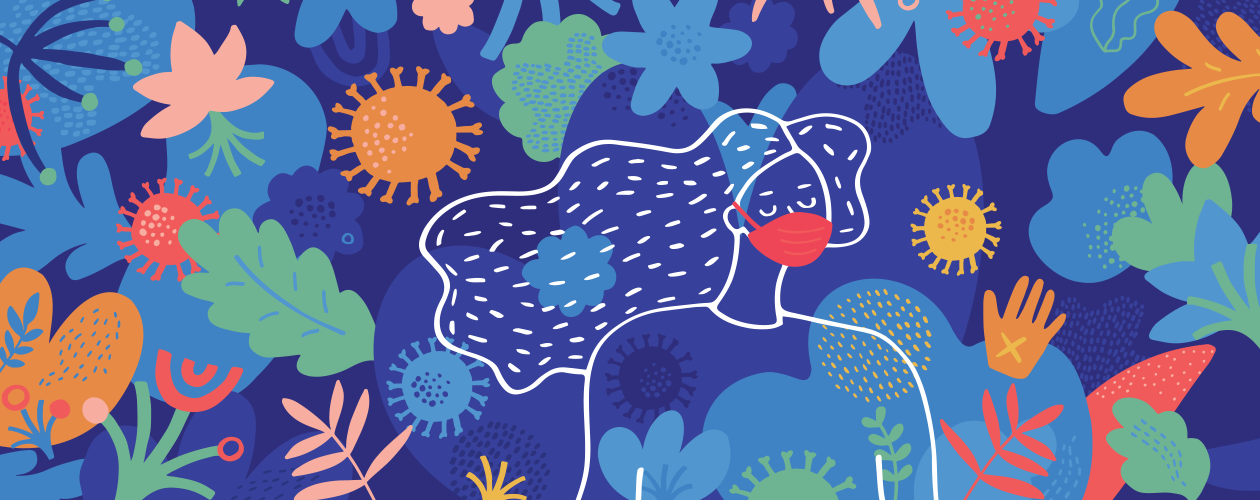
Lockdown: Supporting your Mental Health
If you are feeling upset, anxious or frustrated by the current ‘lockdown’ of Greater Sydney, know that these feelings are normal, natural responses to situations infused with uncertainty. Also know that there are steps you can take to alleviate the impacts that uncertainty and isolation may have on your mental health. Read on to learn how you can look after your own mental health and support those around you.
Dr Russ Harris, author of The Happiness Trap, has devised a formula for responding effectively to any crisis, including COVID-19.
F – Focus on what’s in your control.
It’s all too easy to get lost in worrying and ruminating about all sorts of things that are out of your control and while it’s completely natural for us to get lost in such worries, it’s not useful or helpful. Indeed the more we focus on what’s not in our control, the more hopeless or anxious we’re likely to feel. So the single most useful thing anyone can do in any type of crisis – COVID related or otherwise – is to focus on what’s in your control. You can’t control what happens in the future. You can’t control COVID itself or how our authorities manage it. You can’t magically control your feelings, eliminating all that perfectly natural fear and anxiety. But you can control what you do – here and now. And that matters.
A – Acknowledge your thoughts and feelings.
Acknowledge whatever is ‘showing up’ inside you: thoughts, feelings, emotions, memories, sensation, urges. Take the stance of a curious scientist, observing what’s going on in your inner world. As you do this, often it’s helpful to put this into words, and silently say to yourself something like, ‘I’m noticing anxiety’, or ‘Here’s grief’, or ‘There’s my mind worrying’ or ‘I’m having a feeling of sadness’ or ‘I’m having thoughts about getting sick’.
C – Come back into your body (exercise, stretches or breathing exercises can all help).
Come back into and connect with your physical body. You could try some or all of the following, or find your own methods:
- Slowly pushing your feet hard into the floor.
- Slowly straightening up your back and spine; if sitting, sitting upright and forward in your chair.
- Slowly pressing your fingertips together
- Slowly stretching your arms or neck, shrugging your shoulders.
- Slowly breathing.
Note: you are not trying to turn away from, escape, avoid or distract yourself from what is happening in your inner world. The aim is to remain aware of your thoughts and feelings, continue to acknowledge their presence and at the same time, connect with your body, and actively move it. Why? So you can gain as much control as possible over your physical actions, even though you can’t control your feelings. (Remember, F = Focus on what’s in your control)
E – Engage in what you’re doing.
Get a sense of where you are and refocus your attention on the activity you are doing. You could try some or all of the following suggestions, or find your own methods:
- Look around the room and notice 5 things you can see.
- Notice 3 or 4 things you can hear.
- Notice what you can smell or taste or sense in your nose and mouth.
- Notice what you are doing.
- End the exercise by giving your full attention to the task or activity at hand.
Ideally, run through the ACE cycle slowly 3 or 4 times, to turn it into a 2-3 minute exercise.
Source: FACE COVID eBook: Dr Russ Harris.
If you would like support for your mental health, Global Skills partners with mental health service, Uniting. This partnership gives our job seekers telehealth access to a range of allied health professionals including Registered Psychologists.
Global Skills Director, Rebecca Nicholls says, “Through the provision of phone or video counselling we are making it practical and feasible for our job seekers to quickly access accredited services wherever they live.”
Our staff are just a phone call or email away, so please reach out if you need help.
Stay safe.

